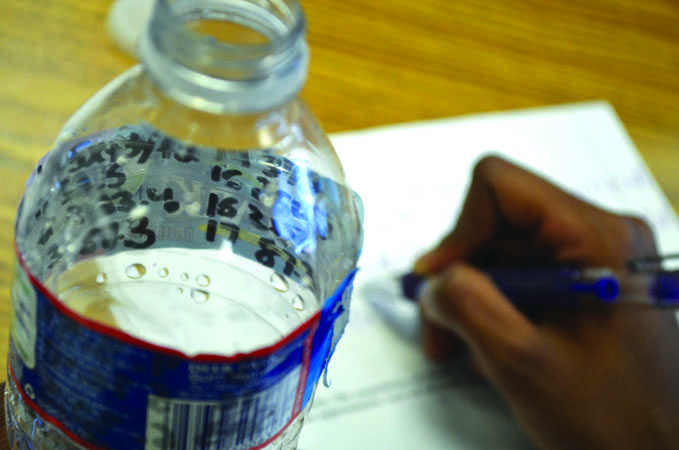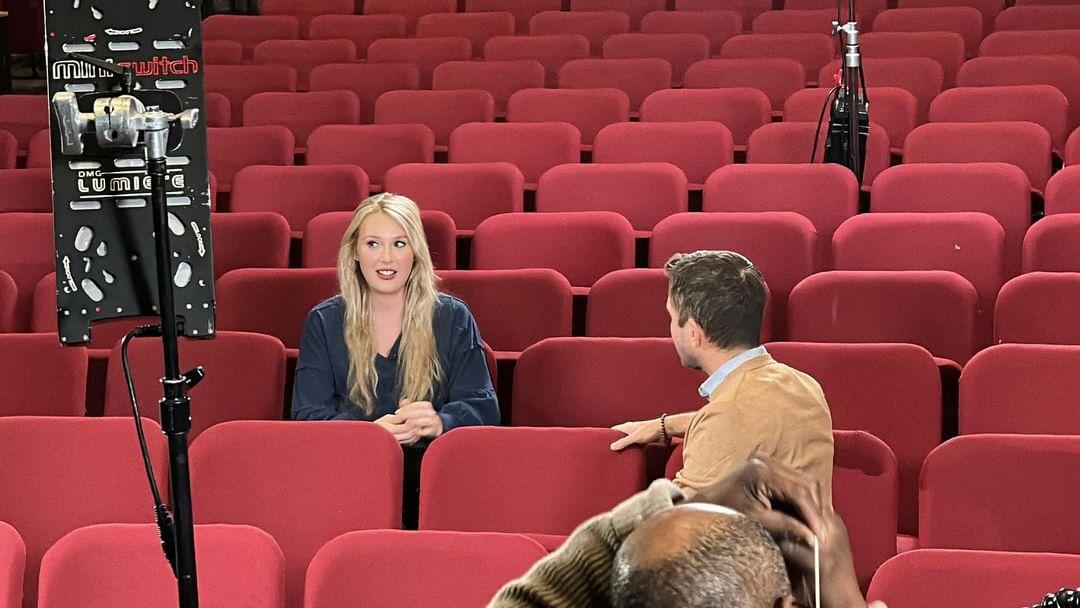It is said that when taking a test, a student will look up for inspiration, down in desperation, and then finally left and right for the answers.
Though this is common practice, it has been drilled into young learners minds from an early age that doing this is wrong.
So why is it that many students find cheating to be okay? Furthermore, why do they feel it necessary to take part in the act at all?
According to USA Today, a recent survey conducted on 23,000 high school students nationwide questioned whether students are actually cheating more. The result was surprising: the number of students cheating in school dropped from 59 percent in 2010 to 51 percent this year. Comparatively, based on a poll distributed on Nov. 27 in W4 and ATOM time to 450 students, 27 percent of AHS students admitted to cheating occasionally or more often on school assignments, including tests and quizzes. However, though AHS cheats less than nearly half of the national average, only 41 percent of students feel that cheating is “moderately wrong.”
“[Cheating] is not helpful, it gets you through a moment,” Assistant Principal Jamie Carayiannis said. “Once you start going down that road and cheating, you don’t know where it’s going to get you and it’s usually not good.”
“I’ve cheated before on tests or quizzes that I haven’t prepared for in the past, especially on tests that I know I’m not going to get a good grade on,” senior Ann Marie Frankfurt said. “I give in to cheating because sometimes I have notes hidden under my book while taking the quiz. I feel badly about cheating most of the time and I don’t do it often.”
With technology becoming more and more advanced, students can cheat in ways that stretch far past just copying answers. Now students have become creative, actually hiring someone online to write their paper or by asking to go to the bathroom and then texting their friends for the answers. In some extreme cases, students have even scanned correct answers onto candy bar labels in place of the nutrition information. The same has been done to water bottle labels, which is a reason why many teachers don’t allow them in class while taking a test anymore.
“On occasion we’ll get a situation where kids are trying to text answers to a test,” Carayiannis said. “I’ve had some assignments that are identical.”
One of the main departments affected by issues of cheating every year typically fall to the English department, as many students plagiarize essays and other written assignments. 29 percent of students surveyed admitted to cheating, including plagiarizing, on English assignments. This was especially apparent last year, as there was a major issue of plagiarism in the IB SL I English classes that caused the department to rethink the load of the assignment.
“We had six cases of plagiarism on the Jane Eyre journal assignments last year,” English teacher Stephanie Long said. “We as English teachers have always been on guard about plagiarism, but after having that many [cheating] cases on one assignment through sites like Spark Notes, we made students this year do only four, more in-depth journals compared to making students do ten journals last year.”
Administration’s policy towards punishment for cheating usually falls with the teacher as the first case of cheating arises. If the problem persists, typically detentions will be given on Saturday mornings and if the cheating still continues, then more severe punishments, such as suspension, can be given.
“It is such a difficult situation because I feel like [cheating] happens mostly with kids in bad situations that they can’t find their way out of,” Long said. “I feel like it’s much better to ask a teacher for an extension on an assignment than risk cheating and getting a zero. Most teachers are able to be flexible if the student explains their situation to them.”
Long would then go on to explain that she finds that most students who she finds cheating or plagiarizing are typically IB students, as they tend to be more conscientious and want a better grade on an assignment.
“This is why we start the year out talking about the risks of cheating and plagiarizing,” Long said. “Though it doesn’t happen often, students should not procrastinate.”
Comparatively, 54 percent of those students surveyed admitted that they cheat mostly on math assignments.
“[The data] is disappointing, mostly because if students cheat on homework, they’re going to struggle on the tests,” math department chair Karen Olarinde said. “It’d make more sense to at least try on the homework so they’re not setting themselves up to fail on the exam.”
Some teachers have strived to make cheating on math assignments, such as quizzes and tests, harder by giving different versions to students near each other. Others, however, feel that cheating isn’t worth the extra precaution and that it isn’t that major of an issue at AHS.
“I think that if I was to take the number of incidents of plagiarism and cheating that I see over the year, that its minimal,” Carayiannis said. “If you don’t experience it, you’re not going to come away with anything. I hope that our school is in line with that and I think that we are.”










